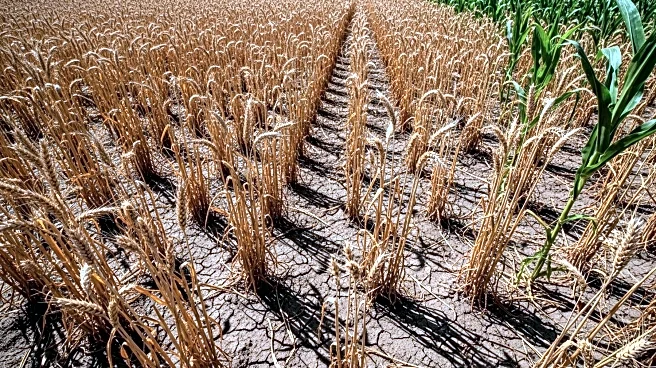What's Happening?
The UK has experienced one of its driest springs on record, leading to significant reductions in crop yields, according to the National Farmers' Union. The East Midlands, among other regions, remains officially in a drought. Patrick Lynn, a farmer from Hockerwood Park, reported that his spring barley yield was about half of the normal amount due to the lack of rainfall. Despite some crops planted in the previous autumn faring slightly better, they still grew significantly less than expected, impacting financial stability. The drought conditions have coincided with a global oversupply of grain, resulting in low prices and financial struggles for arable farmers, particularly in the East Midlands.
Why It's Important?
The drought's impact on crop yields is significant for the agricultural sector, affecting both local farmers and the broader economy. Reduced yields can lead to increased prices for consumers and financial strain for farmers, who are already facing low grain prices due to global oversupply. This situation highlights the vulnerability of agriculture to climate conditions and the need for adaptive strategies to mitigate such impacts. The financial pressures on farmers could lead to long-term economic challenges, affecting employment and food security in the region.









